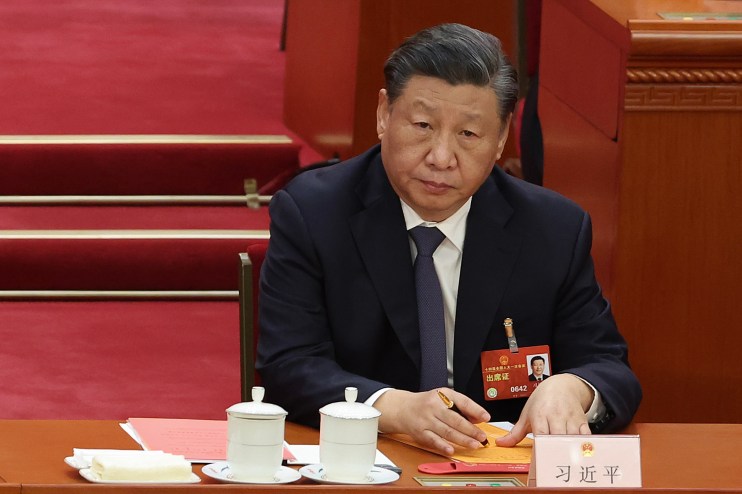Sunak in China row over Confucius Institute U-turn

Downing Street has refused to elaborate on Rishi Sunak’s decision not to ban controversial Confucius Institutes from operating in the UK.
The Prime Minister previously pledged during his leadership bid to bar the 30 Beijing-linked organisations from running on UK soil. Confucius institutes are Chinese cultural and language outposts.
But he has now walked back his plans, claiming such a move would be “disproportionate”.
Conservative China hawks including former leader Sir Iain Duncan-Smith criticised the U-turn on the schools, accused of spreading propaganda and spying, as “ridiculous”.
It comes as a delegation of US lawmakers are set to touch down in London on Thursday in a bid to lobby for the UK to toughen up its talk on the Asian superpower, according to Politico.
Meanwhile, former PM Liz Truss made headlines with a speech in Taiwan urging Sunak, who is in Japan for a G7 meeting, to designate Beijing as a “threat”.
‘Robust action’
Asked by City A.M. why the PM had taken the decision on the institutes, his official spokesman said: “Like any international body operating in the UK, the Confucius Institutes (CI) need to operate transparently and within the law.
“We are taking action to remove all government funding from the CIs in the UK but we currently judge it would be disproportionate to ban them.
“It’s important to note that the government does not directly fund the CIs and nor were we planning to enter any financial arrangement with them in the future.”
Asked whether it was due to concerns over reprisals from the Chinese government, and whether there were plans to strengthen the integrated review (IR), a document outlining the UK’s military and foreign policy priorities, he said: “We’ve been clear on our policy around China and we’ve taken robust actions to protect UK institutes.
“You’ve seen the renewal of the IR which we published earlier this year which talks about China being the biggest state-based threat to the UK’s economic security so we’ll obviously continue to look at this area closely.”
The document describes China as an “epoch-defining threat” and says the UK will continue to engage in “bilateral relations”, an approach endorsed by foreign secretary James Cleverly.
Ukraine fears
The government says it has previously removed Huawei kit from the UK’s 5G networks, launched the National Security Investment Act, blocked the sale of Newport microchip plant Wafer Fab to China and is “ensuring Chinese state ownership will play no part whatsoever in the SIzewell C project, taking action to protect UK infrastructure” the spokesman said.
Pushed for an answer on CIs, he added: “We regularly assess the risks faced in academia but we don’t believe it’s proportionate to ban them.”
A Times investigation revealed earlier this year that universities in the UK have “risky ties” to China, including partnering with bodies connected to the Uighur genocide and espionage.
A recent visit by investment monster Dominic Johnson to Hong Kong sparked condemnation from human rights campaigners over repression in the island province.
Concerns over Zhongnanhai (the Chinese government HQ) also relate to the ongoing Russian invasion of Ukraine and the relationship between Presidents Putin and Jinping.
Defence secretary Ben Wallace announced in Berlin on Wednesday that the UK was not preparing to give fighter jets to Zelensky to defend his nation’s skies, while energy security secretary Grant Shapps outlined plans for closer links with the US on carbon storage.
